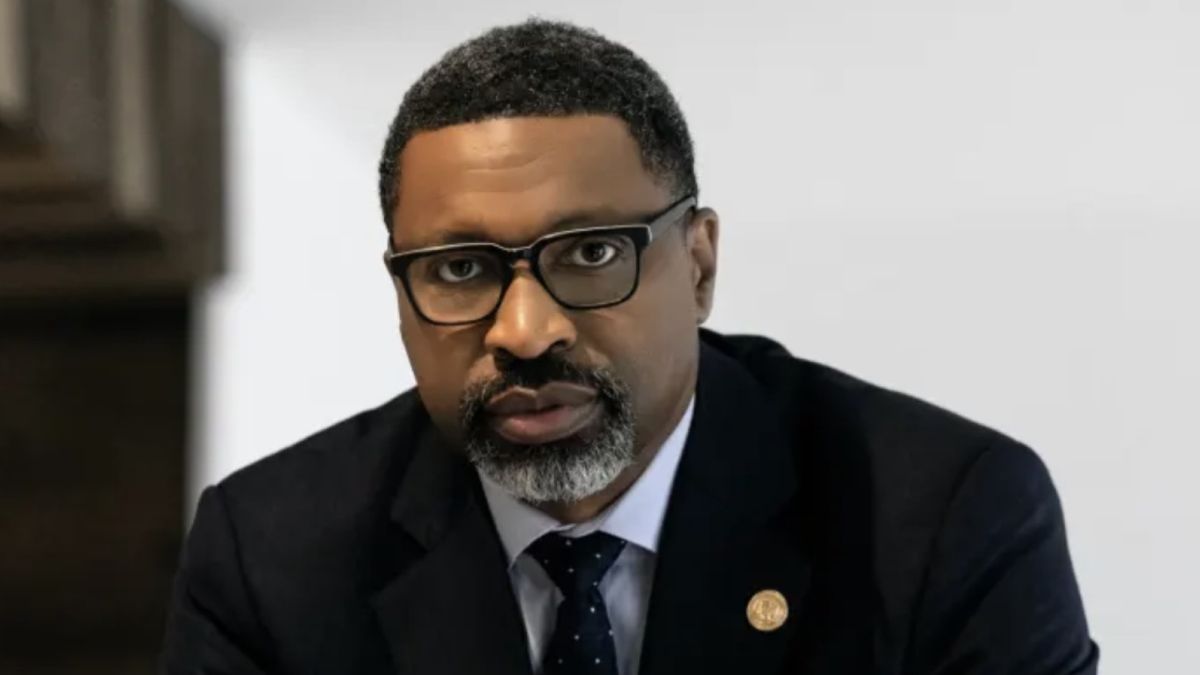Most of the nation is fixated on the NCAA’s Basketball March Madness Tournament to see which team will win the National Championship.
But Derrick Johnson, president and CEO of the NAACP, has taken to the media urging Black high school athletes to turn down offers to play at colleges and universities in states that have already or are considering future possibilities of eliminating Diversity, Equity, and Inclusion (DEI) Programs.
“I fervently hope that high school student-athletes looking to apply to colleges and universities not consider schools that are reversing DEI programs, and they should let the recruiters, coaches, and admissions officers know why they’ve opted not to join their programs,” said Johnson. “I would hope that students currently enrolled at schools that have dismantled DEI consider, in consultation with their parents and guardians, whether their academic needs might be better served elsewhere.”
According to the Chronicle of Higher Education, since early 2023, legislators in dozens of states have introduced at least 65 anti-DEI bills aimed at prohibiting colleges from hiring a more diverse faculty, removing cultural competency training, and undermining comprehensive curriculums.
In January, the Florida Board of Governors banned public colleges from spending state funding on all DEI programs. This followed Florida Governor Ron DeSantis signing a law defunding DEI programs in the Sunshine State. The University of Florida was quick to make changes, announcing that it had closed the office of its Chief Diversity Officer to be in step with the Board of Governors’ directive.
Former NFL Hall of Famer Emmitt Smith, who played college ball at the University of Florida, expressed disdain for his alma mater’s decision to close down the school’s DEI office.
“We need diverse thinking and backgrounds to enhance our University, and the DEI department is necessary to accomplish those goals,” Smith said in a statement posted on X, “Instead of showing courage and leadership, we continue to fail based on systemic issues, and with this decision, UF has conformed to the political pressures of today’s time. To the many minority athletes at UF, please be aware and vocal about this decision by the University, now closing the doors on other minorities without any oversight.”
In a letter dispatched to Charlie Baker, the president of the National Collegiate Athletic Association (NCAA), the NAACP’s top executive intimated its position that “current and prospective student-athletes reconsider any decision to attend and compete at a predominantly White institution in Florida.”
Others agree with Smith’s and Johnson’s positions.
“For me, in a lot of ways, it’s hypocritical for an institution to benefit from Black talent and Black excellence in athletes and not have a similar investment in their success as students and as human beings,” said Frank Harris, a professor who teaches diversity and equity in higher education at San Diego State University.
According to ESPN, in 2022-23, the NCAA generated nearly $1.3 billion in revenue, more than half of which was distributed to Division I schools. This revenue increased from $1.14 billion reported for the previous fiscal year. NCAA football, in particular, is a huge money maker, with Black athletes’ massive contributions paving the way for lucrative gains for a multiplicity of colleges and universities.
“The same states that seek to undermine educational opportunity and holistic learning environments are profiting to the tune of millions of dollars a year off the backs of Black talent, their families, and fans,” Johnson said. “While these leaders may not listen to our rallying cries, they most definitely stand to feel the impact of our absence.”
Johnson and other Black activists, political leaders, and supporters of diversity, equity, and inclusion programs are urging Black student-athletes to boycott colleges and universities in states that have promoted or passed anti-DEI policies.
“For Black college athletes, this is the ‘bus boycott’ of our era,” said Johnson.
Boycott was a word and action that resonated with Black people seeking significant racial change during the Jim Crow Era of segregation. It was a coordinated and robust level of protest to challenge particular forms of discrimination by societal establishments. To boycott meant withholding a group of people’s business, support, and participation until desired changes were manifested.
While Johnson didn’t mention the historic Montgomery Bus Boycott, he inferred a super movement of change was needed in the form of a boycott of enormous proportions. The Montgomery Bus Boycott was a political and social protest where Black men, women, and children in the southern city stopped using the bus system for any purpose. The boycott lasted from December 5, 1955, to December 20, 1956, bringing Montgomery to its financial knees. It ended with the U.S. Supreme Court ruling that segregation on public buses was unconstitutional.
“In order to prevent our nation from the negative, long-term consequences of dismantling DEI, we must use every tool at our disposal to fight back against these coordinated attacks,” said Johnson, a Detroit native. “And while the politicians spearheading this anti-Black campaign may not respect our community or our nation’s history, the profits that their respective states reap from Black talent is undeniable.”
Johnson has a direct message to legislators, other elected officials, college and university presidents, and board members who have made it their mission to dismantle diversity, equity, and inclusion initiatives.
“Embracing the ideas of diversity, equity, and inclusion is the best way to combat systemic racism and ensure that America is a country of opportunity for all of us,” Johnson said. “We must not allow dark forces to revert our progress on embracing diversity, equity, and inclusion. The value that Black and other college athletes bring to large universities is unmatched. If these institutions are unable to completely invest in those athletes, it’s time they take their talents elsewhere.”
